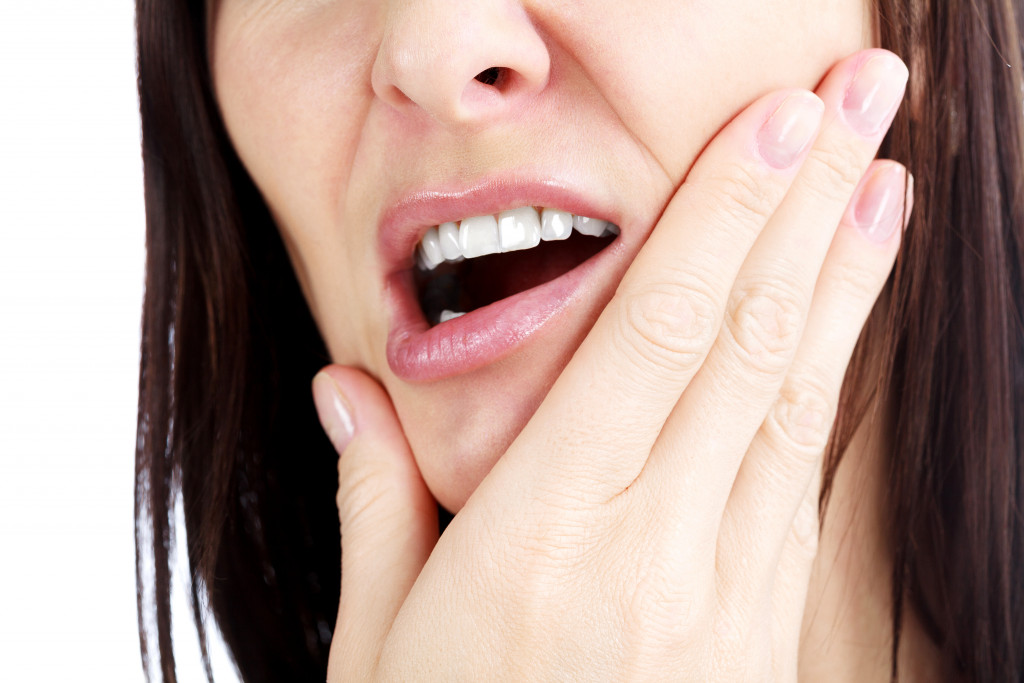Chewing is an essential part of the digestive process. It’s considered the first part of a three-part digestive system that starts with the mouth, goes to the stomach, and then finishes in the small intestine. Chewing breaks down food so your body can absorb the nutrients more efficiently.
So if a person starts to have problems with chewing, have a ripple effect on their overall health. Here are some reasons a person might begin to have problems chewing and what you can do about them.
Teeth Grinding
Your teeth might hurt from late-night teeth grinding. This could be due to stress or anxiety if you find yourself grinding your teeth. Teeth grinding can also be caused by misaligned teeth or an uneven bite. If you think you might be grinding your teeth, you have different options for fixing it. Here are some of them:
Reduce Stress
You can do a few things to try to reduce stress in your life. You can start by exercising for at least 30 minutes daily, meditating, and getting enough sleep. You might also want to try relaxation techniques like yoga or Tai Chi.
Wear a Nightguard
If you grind your teeth at night, your dentist can fit you with a nightguard. A nightguard is a plastic mouthguard that you wear at night. It will help to protect your teeth from the damage of grinding.
Change Your Diet
You might need to change your diet if you’re having problems with chewing. For example, if you have gum disease, you might need to avoid difficult foods to chew. You might also need to eat softer foods if you have dentures or braces.

TMJ Disorder
TMJ disorder is a condition that affects the temporomandibular joint, which is the joint that connects the lower jaw to the skull. TMJ disorder can cause pain and difficulty chewing. If you think you might have TMJ disorder, you need to get any of your missing teeth replaced.
Implants
The lack of teeth can often lead to TMJ. This is because the teeth act as stabilizers for the lower jaw. When you don’t have teeth, it can cause the lower jaw to move around and grind against the upper jaw, which leads to pain.
Dental implants are one solution that can help stabilize the lower jaw and alleviate pain. If you can’t squeeze in a dental implant in your schedule, there are now same-day implants that can give you results in as little as one day. For this procedure, your dentist attaches a temporary denture to the implants, which will eventually be replaced with a permanent denture after a few months.
Over-the-Counter Meds
Several over-the-counter medications can help with TMJ pain, such as ibuprofen or acetaminophen. You can also try to apply ice or heat to the affected area to help reduce pain and inflammation. However, unlike implants, OTC meds are a temporary solution to a problem that will likely continue unless the root cause is addressed.
Gum Disease
Gum disease is an infection of the gums that can cause inflammation, bleeding, and pain when chewing. Here are some common ways to treat gum disease:
- Brush and floss your teeth regularly.
- Use an antibacterial mouthwash.
- See your dentist or oral surgeon for deep cleaning.
- Get regular dental checkups and cleanings.
You should also avoid smoking. There are chemicals in cigarettes that can contribute to gum disease. By stopping smoking, you can help reduce your risk of gum disease.
Oral Cancer
Oral cancer can cause pain, numbness, or tingling in the mouth, as well as difficulty chewing. If you think you might have oral cancer, see a doctor or dentist for an evaluation. Oral cancer treatment options include surgery, radiation therapy, and chemotherapy.
Dry Mouth
A dry mouth is often caused by medications or medical conditions such as diabetes. However, a dry mouth can also be caused by smoking or drinking alcohol. If you have a dry mouth, drink plenty of water throughout the day and avoid beverages that contain alcohol or caffeine. Chewing sugar-free gum or sucking on sugar-free hard candy can also help increase saliva production and relieve dry mouth symptoms.
Chewing is an essential part of the digestive process, and if you start to have problems with it, it can ripple effect on your overall health. Therefore, if you think you might be having chewing problems, you should first find the reason for it. Once you know, you can start to find a solution that will work for you.




